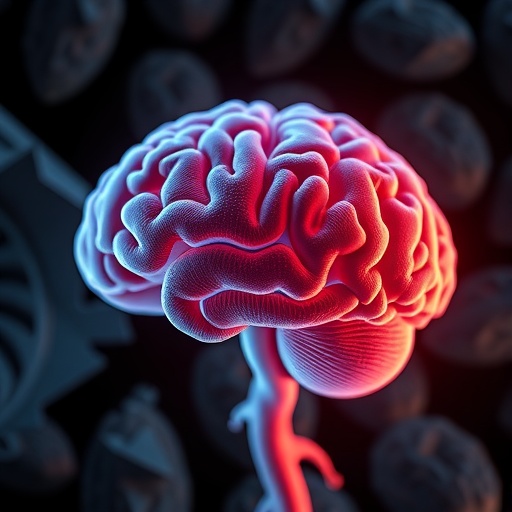In recent years, the surge in high-fat diet (HFD) consumption, driven by modern lifestyle choices and dietary habits, has sparked widespread concern among scientists and health professionals alike. This trend is closely linked with a dramatic rise in obesity, diabetes, and a host of metabolic disorders worldwide. Beyond these well-recognized physical health issues, emerging evidence points to the detrimental impact of HFD on cognitive functions, including memory impairment and accelerated neurodegeneration. Most notably, high-fat diets have been implicated in exacerbating Alzheimer’s disease pathology in animal models, yet the precise molecular and cellular pathways driving these cognitive deficits remained largely unclear until now.
A groundbreaking study from researchers at Chiba University, Japan, has taken significant steps in elucidating this complex relationship by investigating how high-fat diets interfere with memory formation via the disruption of autophagic and lysosomal pathways. Utilizing Drosophila melanogaster, the common fruit fly, as a genetically tractable model organism, the study reveals that metabolic stress induced by a lipid-rich diet severely compromises intermediate-term memory (ITM) through autophagic dysfunction. This insight pinpoints a critical cellular mechanism that links dietary habits to cognitive decline.
Autophagy, an essential intracellular degradation and recycling process, plays a pivotal role in maintaining neuronal homeostasis by clearing damaged proteins and organelles. Its impairment has been closely associated with various neurodegenerative diseases. The current research advances this understanding by detailing how HFD-induced metabolic stress disrupts autophagic flux, particularly by impairing the critical fusion step between autophagosomes and lysosomes, thereby hampering efficient degradation within neuronal cells.
The choice of Drosophila for this investigation is strategic. Unlike rodent models that often concentrate on specific brain regions, flies provide a systemic perspective on the nervous system, combined with sophisticated genetic tools, rapid lifecycle, and conservation of fundamental metabolic and neuronal pathways with mammals. By placing adult flies on an HFD regimen for seven days, the researchers observed elevated triacylglycerol (TAG) and glucose levels, confirming significant alterations in systemic energy metabolism and lipid accumulation in the intestines.
Behavioral assays assessing memory capacity under HFD conditions exposed a nuanced pattern: short-term memory (STM) remained largely intact, whereas both intermediate-term and long-term memory (ITM and LTM) were substantially impaired. This selective vulnerability sheds light on the discrete molecular substrates underlying different memory phases and underscores the sensitivity of autophagy-dependent memory processes to metabolic insults.
Probing deeper into the molecular mechanisms, the research team quantified canonical autophagy markers. The accumulation of Ref(2)p, a protein targeted for degradation via autophagy, surged in the brains of HFD-fed flies, signaling defective clearance. Concurrently, the ratio of Atg8a-II/I — a marker indicating autophagosome formation efficiency — diminished, collectively painting a picture of compromised autophagic activity. Intriguingly, experimental suppression of Atg1, a kinase regulating the initiation of autophagy specifically in adult neurons, recapitulated the memory phenotypes seen under high-fat conditions, suggesting a causal link between neuronal autophagic dysfunction and memory impairment.
Perhaps most compellingly, the researchers demonstrated that pharmacological and genetic interventions enhancing autophagy reversed the observed cognitive deficits. Upregulating Atg1, silencing Rubicon (an autophagy inhibitor), or administering rapamycin, a well-known autophagy inducer, restored memory performance in HFD-fed flies. These findings illuminate a hopeful therapeutic avenue whereby nutritional or pharmacological modulation of autophagy pathways could potentially rescue diet-induced memory dysfunction.
Investigations into the lysosomal machinery further delineated the step at which autophagy falters in the context of an HFD. Despite an abundance of autophagosomes and lysosomes, the fusion into autolysosomes—a crucial final degradation stage—was impaired. Gene expression profiles reinforced this observation, revealing significant downregulation of lysosomal signaling components in HFD-treated flies. Moreover, artificially disrupting lysosomal function directly reduced intermediate-term memory, emphasizing its vital role in memory maintenance.
These discoveries carry profound implications for public health and neurodegenerative disease prevention strategies. As dietary preferences continue to tilt towards high fat intake globally, understanding how such metabolic stresses translate into cognitive decline is crucial. The insights gained from this study advocate for lifestyle interventions—such as diet modifications, exercise, and intermittent fasting—that promote autophagy as viable countermeasures to prevent or mitigate memory deterioration.
Dr. Ayako Tonoki, lead investigator from Chiba University’s Graduate School of Pharmaceutical Sciences, emphasizes the translational potential of these findings: “Our research not only elucidates the cellular basis of how high-fat diets impair cognition but also highlights the reversibility of these deficits through autophagy enhancement. This could accelerate the development of targeted therapies and public health policies aimed at preserving brain health amid dietary challenges.”
Additionally, this work underscores the continuing value of model organisms like Drosophila in neuroscience research. The ease of genetic manipulation combined with conserved signaling pathways makes flies indispensable for dissecting the interplay between metabolism and brain function, especially in age-related cognitive decline contexts.
As research on autophagy and its relation to cognitive health progresses, further studies are anticipated to identify specific autophagy-modulating nutrients and pharmacological agents. These could offer finely tuned interventions tailored to individual metabolic and neurological profiles, thus opening new horizons in preventing diet-related neurodegenerative disorders.
Collectively, this research reinforces the interconnectedness of diet, cellular maintenance processes, and cognitive function. It calls for heightened awareness regarding dietary choices and spotlights autophagy as a critical cellular target in the battle against cognitive decline induced by metabolic stress.
Subject of Research: Animals
Article Title: High-fat diet impairs intermediate-term memory by autophagic-lysosomal dysfunction in Drosophila
News Publication Date: 18-Aug-2025
Web References:
https://journals.plos.org/plosgenetics/article?id=10.1371/journal.pgen.1011818
References:
Tonoki A., Yue T., Jiang M., Onuki K., Itoh M. (2025). High-fat diet impairs intermediate-term memory by autophagic-lysosomal dysfunction in Drosophila. PLOS Genetics, 21(8). DOI: 10.1371/journal.pgen.1011818
Image Credits: Associate Professor Ayako Tonoki, Chiba University, Japan
Keywords: high-fat diet, cognitive decline, autophagy, lysosomal dysfunction, Drosophila, memory impairment, neurodegeneration, metabolic stress, intermediate-term memory, autophagic flux, neuronal health, rapamycin
Tags: Alzheimer’s disease researchautophagy and cognitive declinecellular mechanisms of memory formationdietary habits and brain healthDrosophila melanogaster studieshigh-fat diet effects on memoryimpact of lifestyle choices on cognitionlysosomal pathway disruptionmemory impairment mechanismsmetabolic stress in dietnutritional neuroscienceobesity and neurodegeneration





